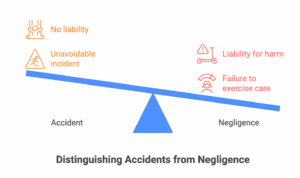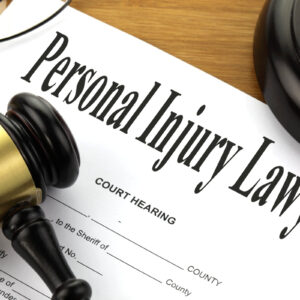The well-being of our children is paramount. Nothing is more heartbreaking than seeing a child suffer an injury, especially when someone else’s carelessness causes it. You might be wondering, “Is my child entitled to compensation?” This guide will walk you through the basics of child injury law and help you understand your rights as a parent or guardian.
Understanding the Basics of Child Injury Law
Child injury law, at its core, focuses on protecting children who have been harmed due to the negligence of another party. Unlike adults, children are legally considered a vulnerable population. This means they are often afforded extra protection under the law. When a child suffers an injury because someone didn’t act responsibly, they (through their parents or guardians) may be entitled to compensation. This compensation can help cover medical bills, therapy, and other long-term needs.
When is it an Accident, and When is it Negligence?
Accidents happen. Kids are prone to bumps and bruises. However, not every childhood injury warrants legal action. The crucial factor is negligence.

- Accident: A truly unavoidable incident, even with reasonable care. Imagine a child tripping and falling while playing despite a well-maintained playground.
- Negligence: When someone fails to exercise reasonable care, resulting in harm to a child. This could be a daycare failing to supervise children properly, a driver running a red light and hitting a child pedestrian, or a manufacturer producing a defective toy.
To prove negligence, you typically need to demonstrate these elements:
- Duty of Care: The responsible party had a legal duty to protect the child from harm. For example, a school has a duty to supervise students.
- Breach of Duty: The responsible party failed to meet that duty of care. Maybe the school neglected playground maintenance.
- Causation: The breach of duty directly caused the child’s injury. The poorly maintained playground caused the child to fall and break an arm.
- Damages: The child suffered actual damages, like medical expenses, pain, and suffering.
What Types of Child Injuries Might Qualify for Compensation?
Child injuries resulting from negligence can take many forms. Here are some common examples:
- Car Accidents: Children injured as passengers or pedestrians due to a driver’s negligence (distracted driving, drunk driving, speeding). According to the National Highway Traffic Safety Administration (NHTSA), child passenger fatalities in car accidents are a significant concern, with hundreds of deaths and thousands of injuries occurring annually.
- Playground Accidents: Injuries caused by defective playground equipment or inadequate supervision. A 2021 Consumer Product Safety Commission (CPSC) report estimated that emergency departments treat over 200,000 children annually for playground-related injuries.
- Dog Bites: Children are particularly vulnerable to dog bites, which can result in severe injuries and emotional trauma. States have varying laws regarding dog bite liability.
- Daycare Injuries: Neglect or abuse at daycare centres can lead to various injuries, including physical harm and emotional distress.
- School Accidents: Injuries occur during activities due to negligent supervision or unsafe conditions.
- Defective Products: Harm caused by dangerous or poorly designed toys, cribs, or other children’s products. The CPSC regularly recalls children’s products due to safety concerns.
- Swimming Pool Accidents: Drowning or near-drowning incidents due to inadequate supervision or unsafe pool conditions.
- Birth Injuries: Injuries sustained during labour and delivery due to medical malpractice.
Do I Need a Child Injury Lawyer? Recognising When to Seek Legal Help
Not every injury requires a lawyer. Minor scrapes and bruises usually don’t warrant legal action. However, you should seriously consider consulting a child injury lawyer if:
- The injury is severe or requires extensive medical treatment. High medical bills are a red flag.
- The injury was caused by someone else’s apparent negligence. If someone was obviously at fault, a lawyer can help.
- You are dealing with insurance companies that are being uncooperative. Insurance companies often try to minimise payouts.
- The injury has long-term consequences, like permanent disability or scarring. The lifetime costs associated with a severe child injury can be substantial.
- You are unsure of your legal rights. A lawyer can explain your options and guide you through the legal process.
Proving Your Case: How a Child Injury Lawyer Helps Obtain Compensation
A child injury lawyer is crucial in building a strong case and pursuing compensation. They can:
- Investigate the accident: Gathering evidence, interviewing witnesses, and reviewing police reports.
- Consult with experts: Working with medical professionals and accident reconstruction specialists to establish the cause and extent of the injuries.
- Negotiate with insurance companies: Protecting your child’s rights and fighting for a fair settlement.
- File a lawsuit: If a settlement cannot be reached, the lawyer will file a lawsuit and represent your child in court.
- Establish Guardianship or Trust: For larger settlements, lawyers can help establish a guardianship or trust to manage the funds responsibly for the child’s future needs, safeguarding against mismanagement and ensuring the money is used for the child’s benefit until they reach adulthood.
Proving negligence in child injury cases can be challenging. Children may be unable to provide accurate accounts of what happened. Eyewitness testimony can be crucial, but unreliable. A skilled child injury lawyer knows how to overcome these challenges and build a compelling case.
Child Daycare Injury Lawyer: Protecting Your Child’s Rights
Daycare centres have a special responsibility to protect the children in their care. When a child is injured at daycare due to negligence, it can be particularly upsetting. A child daycare injury lawyer specialises in these types of cases. They understand the specific regulations and standards of care that daycare centres must adhere to. They can investigate potential violations, such as:

- Inadequate supervision: Lack of sufficient staff to monitor children properly.
- Unsafe premises: Hazardous conditions, such as broken equipment or exposed electrical wires.
- Negligent hiring: Failure to properly screen employees.
- Abuse or neglect: Physical, emotional, or sexual abuse.
Steps to Take After a Child Injury: Securing Your Child’s Future
If your child has been injured, taking the right steps is crucial for both their health and your potential legal options:
- Seek immediate medical attention: Your child’s health is the top priority. Document all medical treatment and expenses.
- Document the scene: Take photos and videos of the accident scene, including any hazards or contributing factors.
- Gather information: Obtain contact information from witnesses.
- Report the incident: File a police report or incident report with the relevant authorities (e.g., the school, daycare, or property owner).
- Consult with a child injury lawyer: Even if you are unsure whether you have a case, a lawyer can provide valuable guidance and protect your rights.
- Avoid speaking with insurance companies without legal representation: Insurance adjusters may try to get you to make statements that could harm your case.
Child injury cases can be complex and emotionally challenging. Seeking legal help from an experienced child injury lawyer can provide the support and guidance you need to protect your child’s rights and secure their future.
Remember, laws vary by state. An experienced lawyer in your state can give you advice based on the rules specific to your area.


